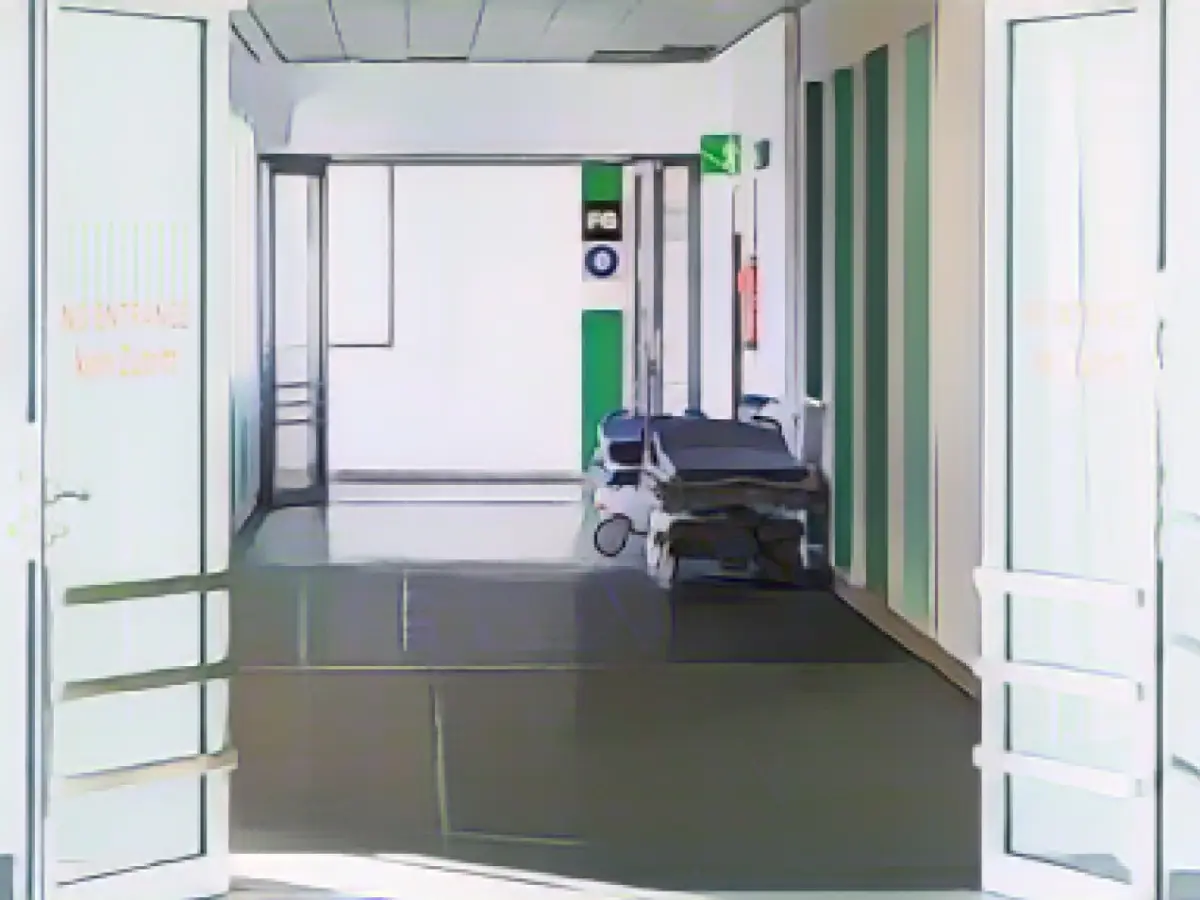ER Crises in Baden-Württemberg: Clinics Bursting at the Seams as Emergency Practices Close
Hospitals in Baden-Württemberg have been grappling with a surge in emergency department admissions since statutory health insurance physicians implemented restrictions on emergency services. According to a recent survey by the Marburger Bund doctors' union, over 70% of doctors in 111 emergency departments across the state reported an increase in patient numbers. The findings, presented on Tuesday in Kirchheim unter Teck, have led to calls for the lifting of these restrictions.
The union's survey involved 725 doctors from the state, representing a significant portion of the estimated 120 emergency departments in Baden-Württemberg. Sylvia Ottmüller, the state chairwoman of the Marburger Bund, criticized the insufficient staffing in both medical and non-medical areas to handle the increased patient load.
The Baden-Württemberg Association of Statutory Health Insurance Physicians (KVBW) announced restrictive measures for emergency care at the end of October. Eight emergency practices were closed entirely, six were partially closed during the week, and opening hours were reduced in nearly all other practices. This decision was prompted by a court ruling that ended the use of so-called pool doctors for emergency services. These doctors had previously handled around 40% of the duties in emergency practices.
This shift has led to strain on hospitals in Baden-Württemberg, who are now struggling to manage the influx of patients who would have otherwise been treated in emergency practices. The increased patient load, coupled with potential medical care shortages in emergencies, has become a significant concern for the Marburger Bund and the public health.
Additional Context:
While the Marburger Bund highlights the impact of the KVBW's restrictive measures on hospitals, it's essential to note that the broader national and regional measures implemented to combat the COVID-19 pandemic have also influenced the healthcare system.
The German government introduced various restrictions and measures, such as the "3G" and "2G" rules, which limited access to public venues based on vaccination status and recent testing. Measures were also implemented based on hospitalization rates and contact restrictions, albeit with criticisms regarding their shortcomings[1].
Legal challenges were also a fixture of the government's COVID-19 response, with parties like the Free Democrats (FDP) and the Alternative for Germany (AfD) voicing their concerns. The Federal Constitutional Court intervened on several occasions, upholding some measures while addressing concerns about discrimination and proportionality[1].
The government also introduced a partial vaccine mandate for healthcare workers, but a broader mandate proposal was rejected in the Bundestag. Testing and vaccination strategies, including booster shots and free rapid tests for risk groups, have also played a role [1].
In summary, while the KVBW's restrictive measures have put pressure on Baden-Württemberg hospitals, the broader national and regional measures have also affected the health care system during the pandemic.








